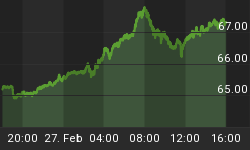As Syria aggressively courts foreign investors to rescue its dwindling oil and gas sector, government corruption and problems settling disputes remain sticking points for some interested international players. But experts are divided over how contentious these obstacles truly are.
Foreign oil firms face "some bureaucracy" in the petroleum industry but the situation has improved quite a bit, said Hisham Yazigi, a 30-year veteran of the Syrian oil industry. Yazigi argued there is no "major hindrance for investment" since Syria's national petroleum company now has the expertise to deal with international capital.
In the past, Syria has "honored" all of its financial obligations to oil-producing firms, "otherwise, Royal Dutch Shell and Total, believe me, they won't be there," said Yazigi, now retired. He was the former deputy general manager of Royal Dutch Shell and the general manager of Petro-Canada in Syria. He added that he is not a spokesman for the government.
Yet Andrew Tabler, a Syria expert at the Washington Institute for Near East Policy, argued the country's legal structures must be reformed. The government must fix problems associated with resolving disputes and a court system that "doesn't work very well," he said. While Syria is drawing more foreign investment than in previous years - mainly from Persian Gulf countries -- "it's still among the lowest in the Middle East" due to corruption, he said.
Earlier this month, the Syrian government announced that oil production will likely rise this year following 13 years of steady decline. Under the plan, eight new blocks will be opened for exploration, development and production, with international companies invited to bid for production-sharing agreements before a September 15 deadline.
Oil production in Syria currently stands at around 383,000 barrels per day, below the all-time high of 583,000 barrels per day reached in 1993, according to an April report issued by the Oxford Business Group.
The Damascus government is now more assertively marketing its oil fields because it's "running out of oil and that's how the regime funds itself," Tabler told OilPrice.com. "So it's a matter of survival for them, for the regime, that is."
Syria has also sought to restore previous contracts with the northern Iraqi government in an effort to be a transport hub moving product to ports and terminals in Turkey, noted Molly Williamson, a consultant and scholar at the Middle East Institute in Washington focused on Middle East and energy issues.
The Syrian government has issued international tenders a few times before. The last time was three years ago, Yazigi noted. The oil firms, however, failed to produce appropriate letters of guarantee needed to sign the contracts, he recalled.
Damascus' latest bid to reverse its petroleum fortunes will mainly draw European companies, but "China is, as you know, very much interested in every possible energy project," Yazigi said. "I know of some American companies interested -- seriously interested -- in taking advantage of the situation. But the sanctions . . . the American government has imposed on Syria may hinder that pursuit." He declined to name the firms.
Tabler said he has not heard of any U.S. firms expressing interest because the oil environment is "very murky and the corruption is rampant" in Syria.
Syria's energy sector has attracted $3 billion of foreign investment, the Oxford Business Group report notes, adding that international money will likely be funnelled first into expanding refinery capacity. Several major international oil companies have begun operations in the country, including Royal Dutch Shell, Total, Gulfsands Petroleum, Tatneft and ONGC Videsh, the report states. Syria's General Petroleum Corp. has also worked with the China National Petroleum Corp.
Inviting foreign investment into the Syrian oil sector will be vital to secure a "sustained renaissance" in production levels, the report adds. Fellow Arab League member Oman managed to turn around its own decline in 2008 through the development of smaller fields and the use of enhanced oil recovery techniques on existing fields.
For now, U.S. firms are shut out from Syria's latest block exploration. The Obama administration has decided to install a new ambassador to Syria following a five-year absence, but export sanctions barring the country from access to most forms of American aid and U.S. military equipment remain.
Washington recalled its ambassador from Damascus five years ago following the assassination of Lebanese Prime Minister Rafik Hariri. A United Nations special tribunal reported links between Damascus and Hariri's assassination.
Two congressmen, Eliot Engel, a Democrat from New York, and Mark Kirk, a Republican from Illinois, introduced a resolution last week advocating rigid enforcement of sanctions and other diplomatic penalties as allegations emerged that Syria gave Lebanon's Hezbollah long-range Scud missiles from Iran. Engel urged President Obama to reconsider naming a new ambassador.
By Fawzia Sheikh for Oilprice.com who offer detailed analysis on Crude Oil, Geopolitics, Gold and most other Commodities. They also provide free political and economic intelligence to help investors gain a greater understanding of world events and the impact they have on certain regions and sectors. Visit: http://www.oilprice.com















